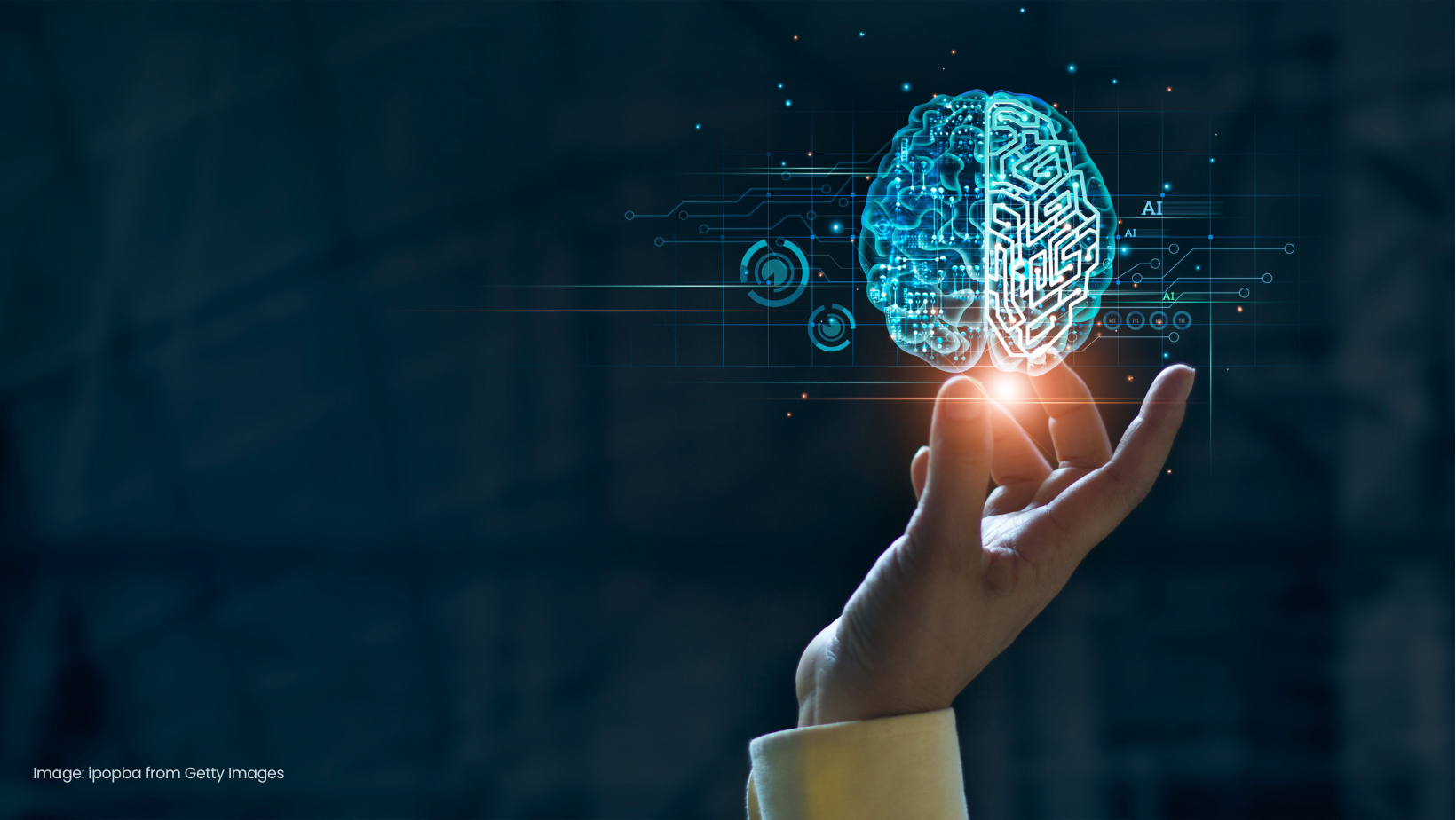We Now Know How AI "Thinks"—and It's Barely Thinking At All

Table of Contents
The Illusion of Intelligence: Unveiling AI's Statistical Approach
Statistical Pattern Recognition, Not True Understanding
At its core, much of today's AI, particularly deep learning models, functions through sophisticated statistical pattern recognition. These systems analyze massive datasets, identifying correlations and probabilities to make predictions or perform tasks. They don't, however, "understand" the data in the way a human does. They don't possess subjective experiences or conscious awareness.
- Image recognition: AI identifies objects in images by detecting statistical patterns in pixel data, not by "seeing" and interpreting the image like a human.
- Language translation: AI translates languages by identifying statistical correlations between words and phrases in different languages, not by understanding the meaning and context of the text.
This reliance on statistical correlation leads to the "black box" problem. The internal decision-making process of many AI systems is opaque, making it difficult to understand why an AI arrives at a particular conclusion. This lack of transparency presents challenges for debugging and ensuring fairness and accountability.
The Limits of Generalization
A significant limitation of current AI is its struggle with generalization. AI models are typically trained on vast amounts of data representing specific tasks. They excel within the confines of their training data but often fail to adapt to new situations or contexts that differ significantly from their training set.
- Overfitting: AI models can become overly specialized to the training data, performing poorly on unseen data.
- Data bias: Biases present in the training data can lead to biased or unfair outputs. This highlights the crucial need for careful curation and analysis of training datasets.
- Narrow vs. General AI: This limitation underscores the distinction between narrow AI (designed for specific tasks, like playing chess or recognizing faces) and general AI (hypothetical AI with human-level intelligence and adaptability). We are currently firmly in the realm of narrow AI.
Comparing AI "Thinking" to Human Cognition: A Vast Difference
Lack of Consciousness and Self-Awareness
A fundamental difference between AI and human intelligence is the absence of consciousness and self-awareness in current AI systems. AI processes information according to pre-defined algorithms; it doesn't possess subjective experiences, feelings, or the capacity for self-reflection.
- Deterministic vs. Non-deterministic: AI operates deterministically, meaning its output is entirely predictable based on its input and algorithms. Human thought, however, is far more complex and unpredictable.
- Philosophical Implications: The absence of consciousness in AI raises profound philosophical questions about the nature of intelligence, consciousness, and the potential for creating truly sentient machines.
The Absence of Common Sense and Reasoning
Humans effortlessly apply common sense reasoning in everyday situations. AI, however, struggles with tasks that require intuitive understanding or common sense. It relies heavily on explicit instructions and struggles to deal with ambiguous situations or unexpected inputs.
- Everyday tasks: Simple tasks like understanding a nuanced joke or navigating a cluttered room are surprisingly challenging for AI.
- Rule-based systems: Many AI systems rely on rule-based systems, which are brittle and struggle to adapt to unforeseen circumstances. Encoding common sense knowledge into AI remains a significant hurdle.
The Future of AI: Realistic Expectations and Ethical Considerations
The Potential of Advanced AI
Despite its current limitations, AI holds immense potential. Continued research and development are pushing the boundaries of AI capabilities, leading to significant advancements across various domains.
- Healthcare: AI assists in diagnosis, drug discovery, and personalized medicine.
- Automation: AI automates tasks, increasing efficiency and productivity across industries.
- Scientific research: AI accelerates scientific discovery through data analysis and simulation.
Ethical Implications of Limited AI
The potential of AI necessitates responsible development and deployment. Overestimating AI's capabilities can lead to unforeseen consequences and ethical dilemmas.
- Bias in AI: AI systems can perpetuate and amplify biases present in their training data, leading to unfair or discriminatory outcomes.
- Job displacement: Automation driven by AI could lead to significant job displacement, requiring proactive measures to mitigate its impact.
- Misuse of AI: AI technology can be misused for malicious purposes, such as creating deepfakes or developing autonomous weapons. Transparency and accountability are crucial to prevent such misuse.
Conclusion
In conclusion, while AI demonstrates remarkable capabilities in specific tasks, its "thinking" is fundamentally different from human cognition. It relies on statistical pattern recognition rather than true understanding, lacks consciousness and common sense, and struggles with generalization beyond its training data. Understanding these limitations is crucial for responsible AI development. We must move forward with a realistic understanding of AI's capabilities and limitations, fostering innovation while mitigating potential risks. Let's ensure that the future of artificial intelligence is one of responsible progress, preventing the overhype and misunderstanding surrounding AI "thinking". Continue exploring the fascinating field of AI and its ethical implications through further reading and engagement in the ongoing dialogue surrounding responsible AI development.

Featured Posts
-
 Report Details Pilot Error In Fatal Black Hawk Helicopter Crash Near Dc
Apr 29, 2025
Report Details Pilot Error In Fatal Black Hawk Helicopter Crash Near Dc
Apr 29, 2025 -
 Akesos Disappointing Clinical Trial Results Send Stock Prices Down
Apr 29, 2025
Akesos Disappointing Clinical Trial Results Send Stock Prices Down
Apr 29, 2025 -
 Legendas F1 Technologia Porsche Koezuti Autoban
Apr 29, 2025
Legendas F1 Technologia Porsche Koezuti Autoban
Apr 29, 2025 -
 Experience The Annual Canoe Awakening A Cultural Celebration
Apr 29, 2025
Experience The Annual Canoe Awakening A Cultural Celebration
Apr 29, 2025 -
 Ariana Grande And Jeff Goldblum Collaborate On I Dont Know Why
Apr 29, 2025
Ariana Grande And Jeff Goldblum Collaborate On I Dont Know Why
Apr 29, 2025
